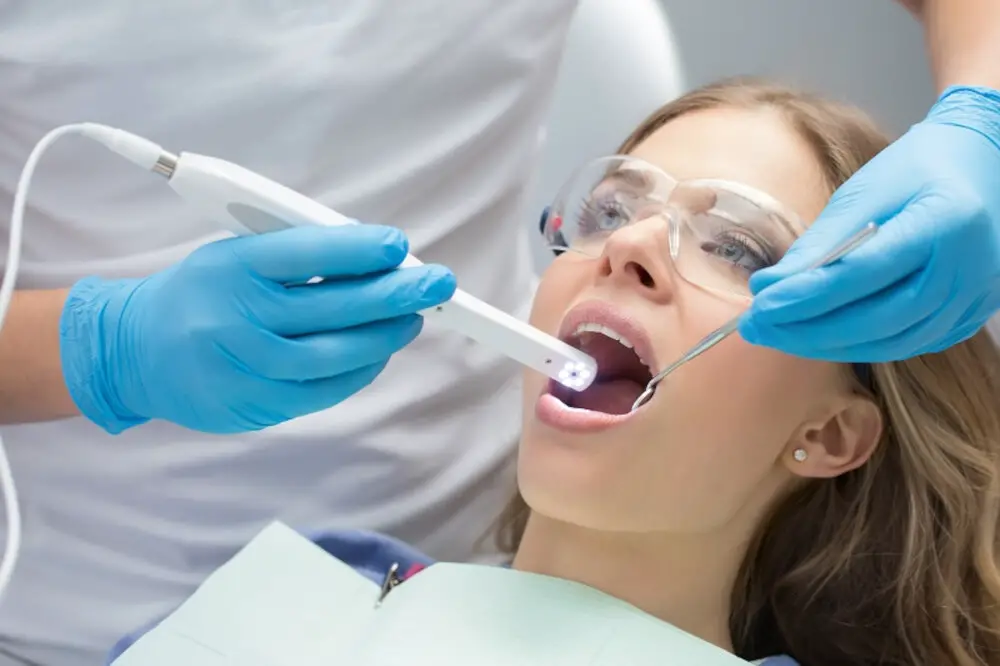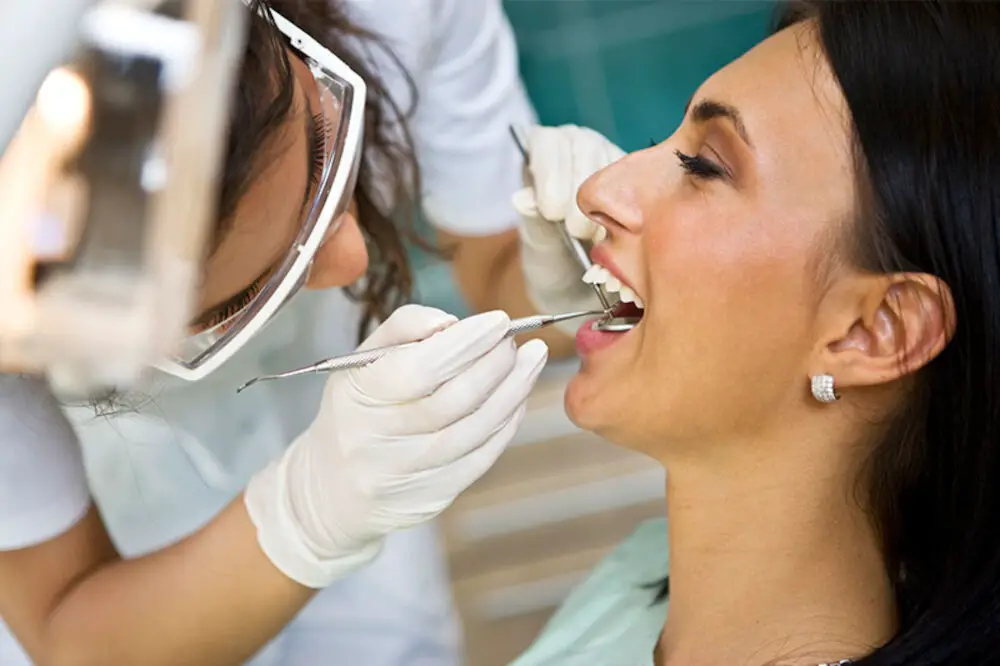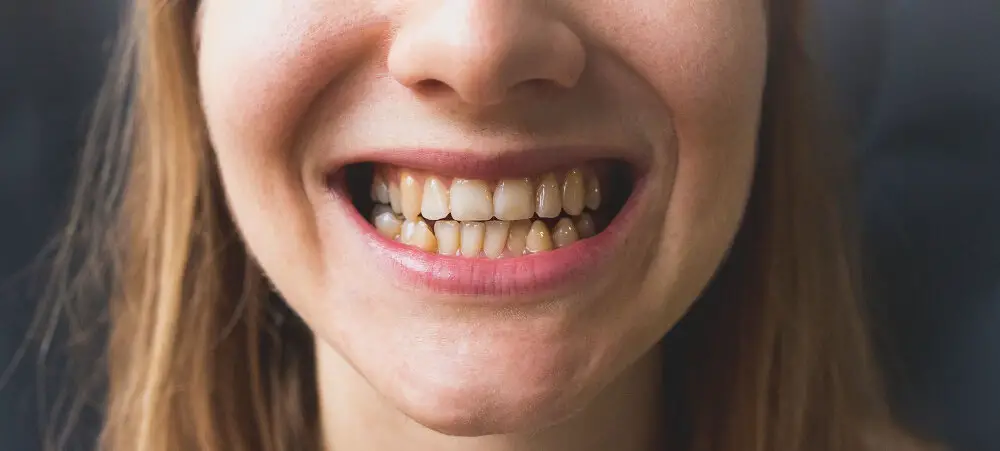When Do Wisdom Teeth Holes Close? A Comprehensive Guide

Wisdom teeth are the final set of molars that typically emerge in the late teenage years or early twenties. These teeth can cause discomfort, pain, and even infection if they do not have enough space to grow or if they become impacted. In some cases, wisdom teeth may need to be removed to prevent further complications. However, even after the extraction, the healing process can be a bit of a mystery. One of the most common questions people have after getting their wisdom teeth removed is when the holes will close. In this comprehensive guide, we will explore the healing process after wisdom teeth extraction and provide insight into when you can expect the holes to close. The healing process after wisdom teeth extraction can take anywhere from a few days to several weeks, depending on the individual. During the first few days, it is common to experience pain, swelling, and bleeding around the extraction site. The body’s natural healing process will begin to kick in, and the socket will start to fill with a blood clot. Over time, the blood clot will harden and transform into a protective layer of tissue that covers the bone. As the tissue heals, the holes in the gum will begin to close. However, the timeline for this process can vary depending on several factors, including the individual’s age, overall health, and how well they follow post-operative care instructions.
Wisdom teeth, also known as third molars, are the last set of teeth to develop in adults, typically emerging in the late teenage years or early twenties. From an evolutionary standpoint, wisdom teeth were necessary for our ancestors, who had larger jaws and needed the extra teeth to grind tough, fibrous foods. However, modern humans have smaller jaws, and there is often not enough room in the mouth for wisdom teeth to grow in properly. This can lead to a variety of issues, such as impaction, infection, abscesses, and damage to adjacent teeth. Therefore, many dentists recommend removing wisdom teeth to prevent these complications and maintain overall oral health.
The Healing Process

The healing process after wisdom teeth extraction can take some time, but it is a crucial step to ensure a full recovery. The human body has an amazing ability to heal itself, and this process begins immediately after the surgery. Blood clots will form in the sockets where the teeth were removed, and the body will begin to create new tissue to cover the wounds. This is when the healing process truly begins, and it can take several days or even weeks for the tissue to fully heal. During this time, it is essential to follow your dentist’s instructions carefully to avoid complications such as infection or dry socket. Additionally, maintaining a healthy diet and good oral hygiene practices can help speed up the healing process and ensure a successful recovery. As the tissue begins to heal, you may experience some discomfort or pain. This is normal and can be managed with over-the-counter pain medications or prescribed painkillers from your dentist. You may also experience swelling or bruising in the area, but this should subside within a few days. It is important to avoid smoking or using straws during this time, as the suction can dislodge the blood clot and delay the healing process. Remember, every person’s healing process is different, so be sure to follow your dentist’s instructions closely and report any unusual symptoms. With proper care and attention, you can expect to fully recover and return to your normal activities within a few weeks.
After wisdom teeth extraction, the healing process begins immediately. Blood clots will form in the sockets where the teeth were removed, providing a protective barrier for the underlying bone and nerves. Over the next few days, the clots will gradually dissolve and be replaced by granulation tissue, which will eventually develop into new bone tissue. The area may be swollen and sore for the first few days, and it is important to follow post-operative instructions to reduce the risk of infection and promote healing. It is also essential to maintain good oral hygiene during this time, avoiding brushing the extraction sites directly and instead rinsing gently with saline solution or prescribed mouthwash. Most patients can expect the holes to close within one to two weeks, although the exact timeline will depend on factors such as the complexity of the extraction and the patient’s overall health.
The timeline for healing wisdom teeth holes varies from person to person. However, generally, it takes about 1-2 weeks for the socket to close up and three months for the hole to fully heal. During the first 24 hours after surgery, it is normal to experience bleeding, swelling, and pain. In the following days, the pain should gradually decrease, and the swelling should subside. To help with the healing process, it is important to follow post-operative care instructions, including taking prescribed medication, avoiding hard and crunchy foods, and keeping the area clean. As the socket begins to close, it is common to experience itchiness and discomfort. During the final stage of healing, the hole will be filled with new tissue, and the gum line will return to its normal state.
Factors That Affect Healing

There are several factors that can affect the healing process of wisdom teeth holes. One of the most significant factors is the level of oral hygiene maintained after the extraction. Poor oral hygiene can lead to infection, which can slow down the healing process and cause further complications. Therefore, it is essential to keep the wisdom teeth area clean by gently rinsing with warm salt water and avoiding brushing the area for the first few days. Additionally, avoiding smoking or using tobacco products can enhance the healing process as tobacco can delay the healing process and increase the risk of infection. Another factor that can affect the healing process of wisdom teeth holes is the patient’s age and overall health condition. Older patients or those with underlying health conditions such as diabetes or autoimmune diseases may experience a slower healing process and require additional care. The body’s ability to repair and regenerate tissues can also be affected by certain medications like blood thinners and steroids. Therefore, it is crucial to inform the dentist or oral surgeon of any pre-existing medical conditions or medications before the extraction to ensure proper care and a faster healing process.
Several factors can affect the healing process of wisdom teeth holes after extraction. Age is an essential factor that can influence the healing process. Younger people tend to heal faster than older adults due to their robust immune system. Smoking is another factor that can slow down the healing process. Cigarette smoke contains harmful chemicals that can delay tissue repair and damage blood vessels, which can impair healing. Furthermore, certain medications, such as blood thinners, can also slow down the healing process by delaying blood clot formation, which is crucial for wound healing. Therefore, it is essential to avoid smoking and inform your dentist about any medication you are taking to ensure a smooth healing process after wisdom teeth extraction.
There are several tips that can help promote faster healing after wisdom teeth removal. Firstly, it is important to keep the extraction site clean in order to prevent infection. This can be done by gently rinsing the mouth with salt water several times a day. Additionally, it is recommended to avoid smoking, drinking through a straw, and consuming hard or crunchy foods for at least a few days after the procedure. These actions can help prevent further irritation to the extraction site and allow it to heal more quickly. Finally, it is important to follow any instructions or recommendations given by the dentist or oral surgeon, as they will be able to provide personalized advice based on the specific situation and procedure. By following these tips and taking care of the extraction site, patients can help ensure a faster and smoother recovery after wisdom teeth removal.
How Long Does It Take for Holes to Close?

The time it takes for holes to close after wisdom teeth removal varies from person to person. In general, it takes around 1-2 weeks for the holes to close up completely. However, it is important to note that the healing process can be influenced by various factors such as age, oral hygiene, overall health, and the number of teeth removed. Additionally, the size of the hole also plays a role in the healing process. Larger holes may take longer to close compared to smaller ones. It is important to follow post-operative instructions from your dentist or oral surgeon to ensure proper healing and minimize the risk of complications. This includes avoiding smoking, using a straw, and consuming hard or crunchy foods that may dislodge the blood clot and prolong healing time. Maintaining good oral hygiene by gently brushing and rinsing with a saltwater solution can also help speed up the healing process. If you experience any signs of infection or prolonged pain, contact your dentist or oral surgeon immediately.
After the removal of wisdom teeth, it takes time for the holes to close. The healing process can take up to several weeks or even months, depending on various factors such as the number of teeth extracted, the individual’s age, and overall health. It is common to experience some discomfort, swelling, and bleeding during the first few days after the surgery. The formation of a blood clot in the socket is crucial for healing, which requires proper care and maintenance of the area. As the healing progresses, the gum tissue gradually grows and fills the socket, leading to the closure of the hole. Maintaining good oral hygiene and following the dentist’s instructions can speed up the healing process and prevent any complications.
The timeline for wisdom teeth holes to close can be influenced by various factors, including the number of teeth that were extracted. Generally, the more teeth that were removed, the longer the healing process may take. Additionally, the individual’s healing process can also affect the timeline. Factors such as age, overall health, and any underlying medical conditions can impact how quickly the body can heal and close the holes. Other factors that can affect the timeline include how well the individual follows post-operative instructions, such as keeping the extraction site clean and avoiding certain foods and activities. It’s important to keep in mind that every individual’s healing process is unique, and there is no set timeline for when wisdom teeth holes will close.
What to Do During the Healing Process

After the extraction of wisdom teeth, the healing process usually takes around two weeks. During this period, it is essential to follow specific guidelines to ensure a smooth and speedy recovery. One of the most crucial steps to take is to take care of the wound. This involves keeping the area clean, which can be achieved by gently rinsing the mouth with saltwater. Additionally, it is crucial to avoid smoking, as it can delay the healing process and increase the risk of infection. It is also advisable to avoid drinking through straws, as the suction may dislodge the blood clot and cause a dry socket, which can be painful and prolong the healing process. Another important aspect to consider during the healing process is the consumption of food and drinks. To prevent discomfort and aid the healing process, it is recommended to stick to soft foods, such as yogurt, mashed potatoes, and soup. It is also essential to stay hydrated by drinking plenty of water, but it is recommended to avoid carbonated drinks and alcohol, as they can irritate the wound. Moreover, it is crucial to avoid foods that are hot, spicy, or crunchy, as they can cause discomfort and increase the risk of infection. By following these guidelines, patients can ensure a smooth and speedy recovery after wisdom teeth extraction.
After having a wisdom tooth extraction, it is important to take proper care of the extraction site to promote healing and prevent infection. To do this, avoid smoking and drinking through a straw as the sucking motion can dislodge the blood clot that forms in the socket, causing a painful condition called dry socket. Applying an ice pack to the cheek for the first 48 hours can help reduce swelling and pain. Be sure to eat soft foods and avoid chewing on the side of the extraction site. Rinse your mouth with warm saltwater after meals, and be sure to brush your teeth gently, avoiding the extraction site. If you experience any unusual symptoms such as bleeding, fever, or severe pain, contact your dentist immediately. By following these tips, you can ensure a smooth healing process and reduce the risk of complications.
Maintaining good oral hygiene and eating a balanced diet are crucial for the health of your teeth and gums. When it comes to foods, it’s best to avoid sugary and acidic foods, as they can cause tooth decay and erosion. Instead, opt for foods that are high in calcium, such as cheese and leafy greens, as well as foods that are rich in vitamin C, such as oranges and strawberries. Proper oral hygiene practices, including brushing and flossing twice a day, can also help prevent tooth decay and gum disease. If you experience pain, swelling, or bleeding in your mouth, it’s important to contact a dentist right away. They can assess the situation and provide treatment if necessary, ensuring that your oral health stays on track.
After the extraction of wisdom teeth, the body initiates the healing process, which includes the formation of a blood clot, the growth of new tissue, and the closing of the hole. The first stage of healing, which takes about 24 hours, is crucial in preventing the clot from dislodging. During the next few days, the body will start to produce granulation tissue, a type of connective tissue, which will cover the hole. It usually takes around one to two weeks for the granulation tissue to form completely and cover the hole. Over time, the tissue will mature, and the hole will gradually close, with complete healing taking anywhere from four to six weeks. During this period, it is essential to follow proper oral hygiene practices to prevent infection and promote healing.
Undergoing wisdom teeth extraction can be a daunting experience, but with proper preparation and postoperative care, it can be a relatively smooth process. It is important to follow all instructions given by your dentist or oral surgeon and to maintain good oral hygiene during the healing process. Avoid smoking or using straws, as these activities can dislodge the blood clot and delay healing. Stick to soft foods and avoid crunchy or spicy foods that can irritate the surgical site. With time and patience, the holes from wisdom teeth extraction will close and the discomfort will fade. Remember to stay in communication with your dental professional and seek medical attention if you experience excessive pain or swelling.
Conclusion

In conclusion, the closure of wisdom teeth holes is a natural process that varies from person to person. It can take anywhere from a few days to several weeks for the holes to close completely. While the healing process can be uncomfortable, with proper care and attention, it is possible to minimize pain and promote faster healing. From maintaining good oral hygiene to avoiding certain foods and activities, taking the right steps can help ensure a smooth and successful recovery. If you experience any unusual symptoms or complications, it is important to consult with your dentist or oral surgeon for guidance and support. Ultimately, by staying informed and proactive, you can navigate the process of wisdom teeth hole closure with confidence and ease.







